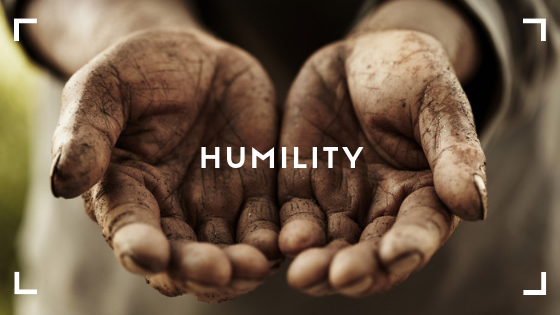The Paradoxical Power of Humility
 |
| Why humility is under-rated and misunderstood |
By Karl Albrecht Ph.D.
Humility is widely under-rated in most Western cultures, it seems to me. It’s also widely misunderstood – maybe that’s why it’s under-rated.
Our popular-media culture is saturated with themes of conflict, combat, and conquest. Popular films feature cops chasing crooks; the military fighting terrorists; the lone avenger pursuing the evil-doers. We say we love peace makers, but our heroes are warriors. As a society, we like our celebrities to be cheeky, self-important, and even a bit narcissistic.
Little wonder that humble people seem a bit strange to us, as if they’re following some syncopated life rhythm that few people around them quite “get.”
Having claimed that humility is misunderstood, I suppose it’s incumbent on me to offer a definition.
What is humility? It’s a subtle concept, and I find myself having to frame it mostly in terms of what it is not. My conception of humility is what you have when you give up certain self aggrandizing thought patterns, reflexes, and behaviors. I offer the proposition – and the value judgment – that humility is a kind of liberation, a paradoxical state of freedom from the culturally imposed norms of narcissistic “me-first” thinking.
One definition of humility is:
a psycho-social orientation characterized by 1) a sense of emotional autonomy, and 2) freedom from the control of the “competitive reflex.”
the preconscious, visceral impulse to oppose or outdo others, or to auto-react against perceived threats to one’s established sense of self.
Consonant with the premise of what humility is not, as I think of it:
- It’s not letting others “push you around.”
- It’s not being a doormat, a sucker, or letting people “walk all over you.”
- It’s not constantly sacrificing your interests to those of others (and then feeling like a victim or a martyr).
- It’s not avoiding conflict or confrontation – not of your making, anyway – for the sake of “being nice.”
- It’s not about hiding your feelings or suppressing your views to avoid alienating others.
The legendary gestalt therapist Fritz Perls said, “I am I and you are you; I am not in this world to live up to your expectations, and you are not in this world to live up to mine.” It’s a liberating idea, I believe.
So, how do you free yourself from the competitive reflex? That requires, first, that you recognize the reflex when it rises up in you; and second, that you choose a more versatile response.
How aware are you of the competitive reflex in yourself?
Let’s consider an example. Your friend has just remodeled her home, and is pleased and proud of the results. She invites you in to have a look. The premise of the situation, whether your recognize it or not, is for her to show off her house; for you to appreciate it and praise her for it; and for her to feel good about it. So what do you do?
There’s a long list of such diagnostic test questions. Do you offer unsolicited advice to others about how to live their lives better? Do you “damn with faint praise” when somebody shares their new idea or new discovery about life? If someone tells a joke, do you feel compelled to top it with a better one? Or, do you hold back on laughing, so the joke falls flat? Do you always have a better story, a better example, a better suggestion, or a better solution? Do you feel compelled to demonstrate your smart you are, or how much you know?
Are you a back seat driver? Do you like to tell people how to raise their kids better? Do you lecture or preach to others? When someone says something that’s mistaken or misinformed, how do you react? If you have a different opinion, do you precipitate a win-lose debate, or do you show respect for the other person’s view as you’re sharing your own?
Does this mean that it’s wrong to try to win at bridge, or improve your tennis game, or compete to get ahead in your work place? Of course not – those are parts of a separate dimension of life. Your talents and abilities will speak for themselves. What we’re dealing with here is a matter of social intelligence, which involves inviting people to move with and toward you, instead of away and against you.
A well-developed sense of humility shines through in your behavior toward others. They feel affirmed, appreciated, encouraged, validated, and psychically nourished. Most of us are powerfully drawn to people who treat us that way, like bees to flowers.
The esteemed psychologist William James reminded us,
“The deepest craving in all human beings is the desire to be appreciated.
Original Here
Thanks for stopping by!
Want to get notifications for Articles and Updates at Tex's Place?
⭐⭐⭐⭐⭐
Want to get notifications for Articles and Updates at Tex's Place?
⭐⭐⭐⭐⭐
CLICK/TAP HERE for options⭐⭐⭐⭐⭐

